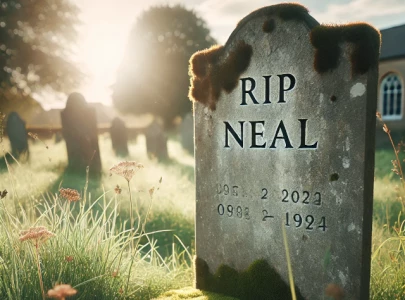
Mantel picked up the prize, one of the highest profile awards in English-language literature, for Bring up the Bodies, part two of her Thomas Cromwell trilogy, at a ceremony at London's Guildhall.
The 60-year-old first won in 2009 with Wolf Hall, the first of the historical fiction saga with King Henry VIII's chief minister as the protagonist.
Accepting her prize, the winner said: "Well, I don't know, you wait 20 years for a Booker Prize and two come along at once."
She called the award an "act of faith and a vote of confidence."
"I know how lucky and privileged I am to be standing here tonight," she told the audience.
"Now I have to do something very difficult, I have to go away and write the third part of the trilogy," she joked.
"I assure you that I have no expectations I will be standing here again."
She becomes just the third writer to clinch the award twice since its inception in 1969, joining Australian author Peter Carey, who won in 1988 and 2001, and the South African JM Coetzee in 1983 and 1999.
Peter Stothard, chair of the judging panel, said the book "utterly surpassed" the first volume.
"This double accolade is uniquely deserved," he said.
"Hilary Mantel has rewritten the rules for historical fiction. In Bring up the Bodies, our greatest modern writer retells the origins of modern England.
"She uses her art, her power of prose, to create moral ambiguity and the real uncertainty of political life, political life then and the pale imitation of political life now," he explained.
Mantel laughed off the lofty tribute, saying: "It is not the Olympics, it is not a competition, you are only as good as your last paragraph and I haven't written one of those today.
"This process can make you feel very much like an ex-writer or even when the praise becomes fulsome a dead writer," she told the post-event press conference.
The £50,000 ($80,000, 62,000 euros) Booker is awarded annually for the best work of fiction by an author from Britain, the Commonwealth or Ireland.
The prize is awarded to a specific book, rather than an author, and is evaluated by a group of judges who compile a long list of novels, followed by a shortlist and then select the final winner.
Bookmakers installed Mantel and radical British writer Will Self as favourites when the six-person shortlist, which included authors from India and Malaysia, was announced last month.
Indian writer Jeet Thayil was selected for his work Narcopolis, which explores heroin addiction in Mumbai.
Tan Twan Eng's novel The Garden of Evening Mists, which tells the story of a Malaysian former Supreme Court judge who retires from public service in Kuala Lumpur to return to the Cameron Highlands, was also recognised.
Self, a controversial and high-profile British literary figure, was nominated for the first time for his experimental modernist work "Umbrella".
The list was completed by British authors Deborah Levy and Alison Moore.
The Booker's five judges this year included academic and literary figures, as well as British actor Dan Stevens from the Emmy-award-winning television show "Downtown Abbey".






1731325890-0/trump-(24)1731325890-0-270x192.webp)



1732954110-0/Untitled-design-(13)1732954110-0-270x192.webp)






COMMENTS
Comments are moderated and generally will be posted if they are on-topic and not abusive.
For more information, please see our Comments FAQ